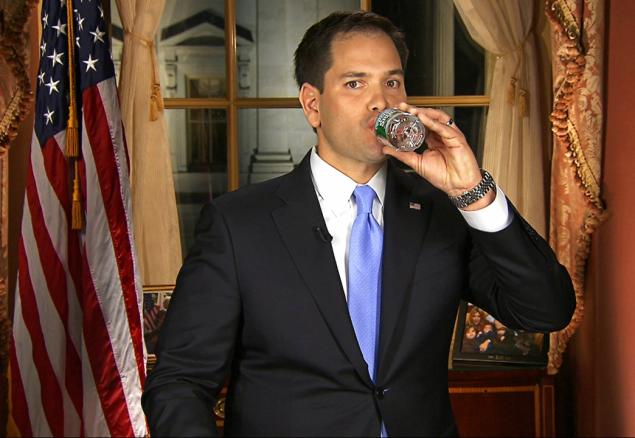Romney’s Lame Parting Shot: Obama’s “Gifts” Won Him Re-Election

It turns out that Mitt Romney’s “47 percent” gaffe in October wasn’t a gaffe at all: it was, as some observed at the time, a reflection of how the Republican nominee sincerely regards the American political landscape.
On Wednesday, Romney held a conference call with campaign donors to give them his take on why he lost the election. The graciousness of Romney’s concession speech was not strongly in evidence. His contempt for the “moocher class” was. Here is Benjy Sarlin at TPM:
According to reports in the Los Angeles Times and New York Times, the former Republican nominee said during a call with donors on Wednesday that Obama had been “very generous” in doling out “big gifts” to “the African American community, the Hispanic community and young people” as well as to women throughout his first term. Benefits such as access to “free health care,” guaranteed contraceptive coverage, more affordable student loans, and “amnesty for children of illegals,” all combined to give the president a decisive edge in popularity.
It’s an odd narrative from the losing candidate, when you think about it: President Obama won re-election because he gave the people what they wanted. Shouldn’t the candidate who gives the people more of what they want expect to win the election? If Mitt Romney’s proposals were not what the people wanted, weren’t the people right to rebuff them?
The answer depends on the nature of the “gifts” and whether they, as Romney charged yesterday, are “small things” that “add up to trillions of dollars.” If Obama was handing out enticing, empty, unaffordable perks — if he was giving out “stuff” or “things” as Bill O’Reilly charged on election night — he could be criticized for running a craven and irresponsible campaign.
Let’s look more closely at the “stuff” and “big gifts” O’Reilly and Romney are referring to. It turns out they are neither small nor particularly costly. They stand to benefit the least advantaged members of our society, as John Rawls’ “difference principle” would recommend. Each also happens to advance a fundamental human right.
Expanded health insurance coverage for people under 26 and free preventive health care for women provided under the Affordable Care Act edge the United States closer to satisfying Article 25 of the Universal Declaration of Human Rights (UDHR) according to which “everyone has the right to a standard of living adequate for the health and well-being of himself and of his family, including food, clothing, housing and medical care and necessary social services.”
The policy of more affordable student loans aspires to the goal set forth in Article 26 of the UDHR: “higher education shall be equally accessible to all on the basis of merit.”
Humane treatment of the children of illegal immigrants is required by the letter and spirit of the Declaration of the Rights of the Child: “Every child, without any exception whatsoever, shall be entitled to these rights, without distinction or discrimination on account of race, colour, sex, language, religion, political or other opinion, national or social origin, property, birth or other status, whether of himself or of his family.”
To his credit, Bobby Jindal, the Republican governor of Louisiana some have touted as a presidential contender in 2016, has repudiated Romney’s “big gift” analysis as “absolutely wrong” and divisive. In an interview with Politico, Jindal said, “we cannot be, we must not be, the party that simply protects the rich so they get to keep their toys.”
Jindal is right. As long as the Republican party continues to construe basic human rights as frivolous and expensive perks — while construing “liberty” as the freedom of the wealthy to amass larger and larger fortunes — it will be rewarded with more losses in presidential campaigns.
Follow Steven Mazie on Twitter: @stevenmazie




